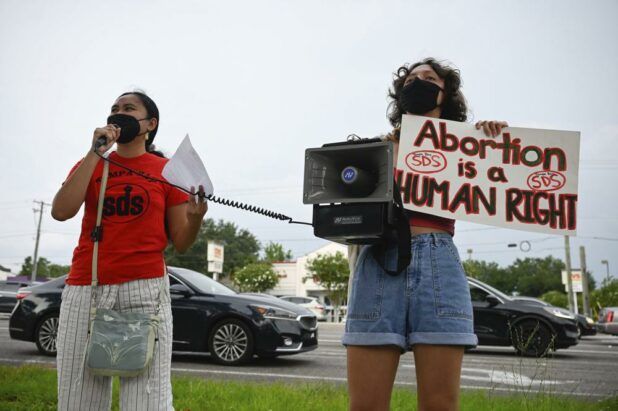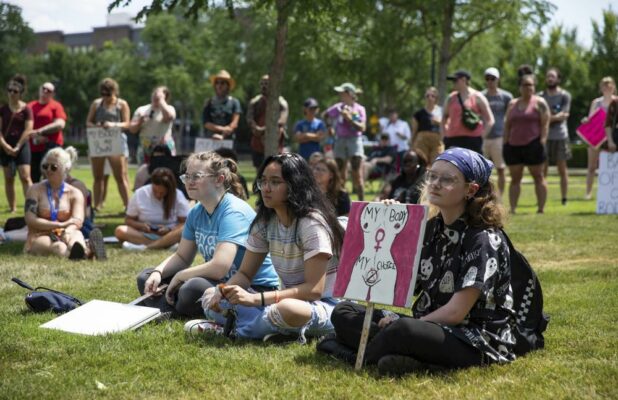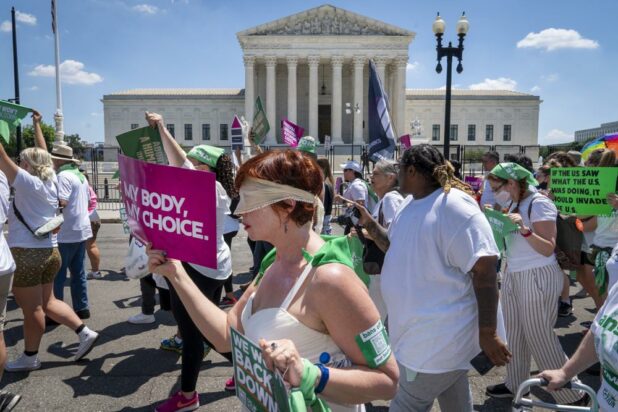Is this term “abortion patient” new, or am I just noticing it right now?
AP:
Abortion providers and patients were struggling Friday to navigate the evolving legal landscape around abortion laws and access across the country since the U.S. Supreme Court overturned Roe v. Wade last week.
In Florida, a law banning abortions after 15 weeks went into effect Friday, the day after a judge called it a violation of the state constitution and said he would sign an order temporarily blocking the law next week. The ban could have broader implications in the South, where the state has wider access to the procedure than its neighbors.
Baby’s legs at week 11:
Baby’s head at week 12:
By week 15, you can see the bones in the baby’s foot:
Abortion is evil at any stage of the pregnancy.
Abortion rights have been lost and regained in the span of a few days in Kentucky. A so-called trigger law imposing a near-total ban on the procedure took effect upon the Supreme Court’s ruling, but a judge blocked the law Thursday, meaning the state’s only two abortion providers can resume seeing patients — for now.
In Texas, abortions up to six weeks resumed at some clinics after a Houston judge said patients still had that right, at least until a new ban on virtually all abortions takes effect in the coming weeks. But the state has asked the Texas Supreme Court to block that order and allow prosecutors to enforce a ban on abortion now, adding to the uncertainty.
The legal wrangling is almost certain to continue to cause chaos for Americans seeking abortions in the near future, with court rulings able to upend access at a moment’s notice and an influx of new patients from out of state overwhelming providers.
Some of the cases involve trigger laws specifically designed to restrict abortion if Roe were to fall, while other laws had been on hold pending the Supreme Court’s ruling and are now being applied. Many of the legal challenges to abortion restrictions argue their state’s constitution guarantees access to the procedure.
Even when women travel outside states with abortion bans in place, they may have fewer options to end their pregnancies as the prospect of prosecution follows them.
Planned Parenthood of Montana this week stopped providing medication abortions to patients who live in states with bans in place, including South Dakota, Arkansas, Missouri and Oklahoma. The move reflects how seriously it is taking the prospect of prosecution, even for abortion providers in states that have preserved abortion rights.
Planned Parenthood North Central States, which offers the procedure in Minnesota, Iowa and Nebraska, is telling its patients that they must take both pills in the regimen in a state that allows abortions.
“There’s a lot of confusion and concern that the providers may be at risk, and they are trying to limit their liability so they can provide care to people who need it,” said Dr. Daniel Grossman, who directs the research group Advancing New Standards in Reproductive Health at the University of California San Francisco.
Emily Bisek, a spokeswoman for Planned Parenthood North Central States, said that in an “unknown and murky” legal environment, they decided to tell patients they must be in a state where it is legal to complete the medication abortion — which requires taking two pills 24 to 48 hours apart. She said most patients from states with bans are expected to opt for surgical abortions.
The implication is that all pregnant women are “abortion patients.”
Well, it’s certainly not the most dehumanizing language we’ve heard yet, and there will be worse in the future.








